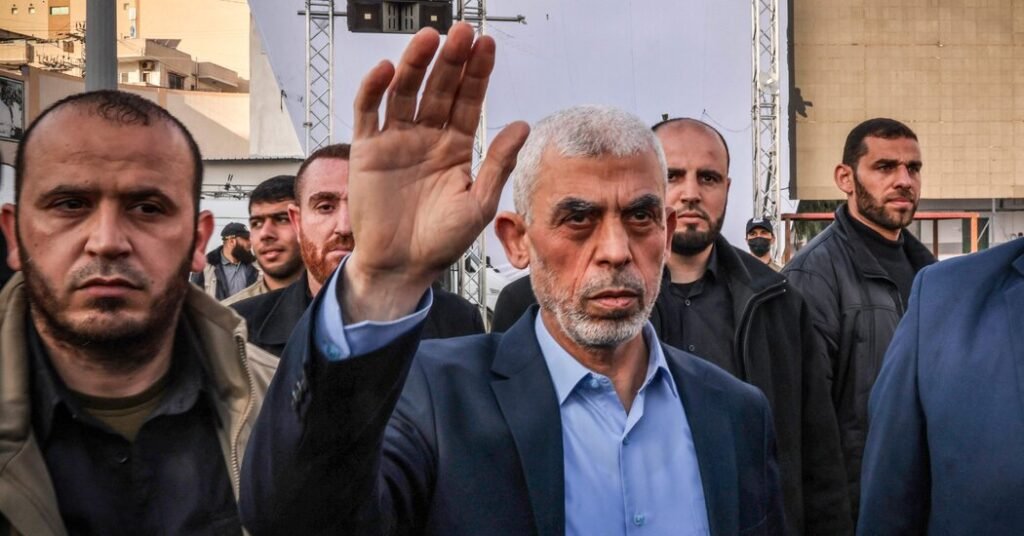After the war in Gaza was ignited by an attack from Hamas, Israeli leaders targeted Yahya Sinwar, Hamas’s top official in the territory, for assassination due to his involvement in the raid. Seven months later, Sinwar’s survival highlights the failures of Israel’s war, which has devastated much of Gaza but left Hamas’s top leadership intact and failed to free most hostages taken during the October attack. Sinwar has emerged as a strong-willed commander and shrewd negotiator, engaging in talks with Israeli envoys while hiding in a tunnel network beneath Gaza and giving consent for concessions made by Hamas negotiators.
Although Hamas officials claim that Sinwar does not have the final say in the group’s decisions, his role as a leader in Gaza and forceful personality have given him significant influence over how Hamas operates. Sinwar is central to Hamas’s decision-making process, particularly in negotiations for a permanent cease-fire. Israeli and Western officials have found that getting Sinwar’s approval has often slowed down negotiations, as it can take days to communicate with him due to damaged communications infrastructure in Gaza.
Born in Gaza in 1962, Sinwar joined Hamas in the 1980s and was later imprisoned by Israel for murder. After two decades in detention, he was released in 2011 and later became the leader of Hamas in Gaza. Sinwar’s understanding of Israeli society has allowed him to use knowledge gained during his time in prison to sow divisions in Israeli society and pressure Benjamin Netanyahu. His strategy is aimed at damaging Israel’s reputation internationally and weakening its relationship with the U.S. Sinwar is believed to be hiding in tunnels beneath Khan Younis, which could impact Israeli military operations.
Hamas denies that Sinwar is leveraging further Palestinian suffering for political gain, stating that the group’s strategy is to stop the war immediately to end the genocide of Palestinian people. While some Israelis are willing to agree to Hamas’s demands for a permanent truce to release remaining hostages, Netanyahu is hesitant to end the war due to pressure from right-wing allies. U.S. officials believe that Sinwar’s decisions are influenced by his brother, Muhammad, a senior Hamas military leader, and that he has a key role in Hamas’s decision-making processes during the war.
Despite claims of unity within Hamas, some observers believe that Sinwar’s personal role in decision-making during the war has been significant, given his position as the leader of Hamas in Gaza. While Hamas’s elected leadership collectively determines the movement’s trajectory, Sinwar’s opinions are considered important due to his leadership on the ground in Gaza. Sinwar’s force of personality and involvement in instigating the October attack have made him a prominent figure within Hamas, leading to challenges in negotiations with Israel. Overall, Sinwar’s role as a leader in Hamas has had a significant impact on the group’s decisions during the war and cease-fire negotiations.

